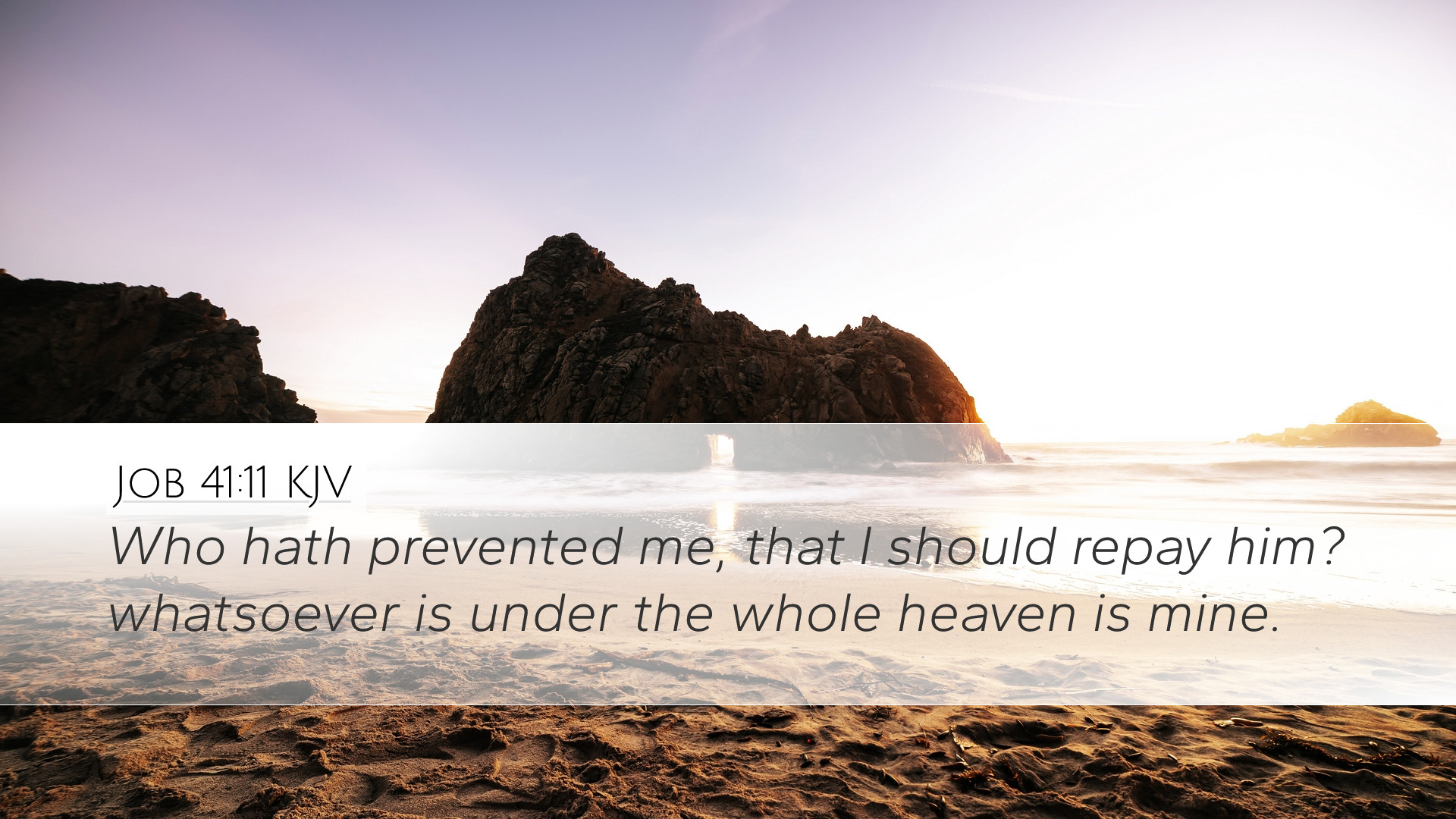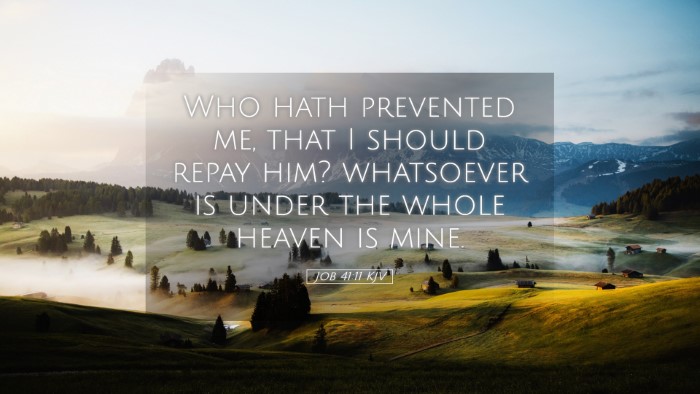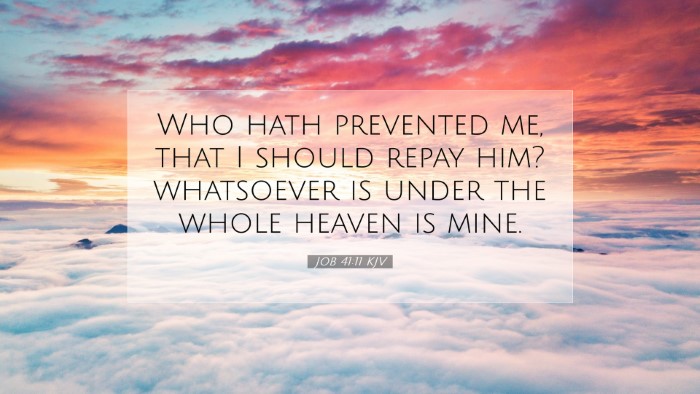Job 41:11 Commentary
Verse: "Who hath prevented me, that I should repay him? whatsoever is under the whole heaven is mine." (Job 41:11)
Introduction
This verse features God's challenge to Job about His sovereignty over all creation. It reveals the limits of human understanding in contrast to divine authority and ownership. Public domain commentaries provide insights that enhance our comprehension of this profound declaration.
Dependency on God's Sovereignty
Matthew Henry draws attention to the absolute sovereignty of God. He notes that when God challenges Job with the question, "Who hath prevented me?" it underscores that no one can place any demands on God. His decisions and actions are uninfluenced by human effort or merit. This speaks to the unconditional nature of His sovereignty.
Key Insights:
- God's Ownership: Everything in existence is ultimately God's. Henry emphasizes this point, indicating that God's claim to ownership is a fundamental truth. This realization brings a proper perspective on our possessions and lives.
- God's Independence: God is not beholden to any creature. He acts according to His own will, independent of human influence, underlining His divine nature.
Theological Reflections
Albert Barnes explores the theological implications of God's question. He highlights that the phrase "prevented me" can be understood as someone attempting to be the first to claim rights on God’s creations. Barnes elaborates, indicating that God's ownership means He is not indebted to any other being.
The Significance of the Question:
- The Nature of Divine Sovereignty: Barnes points out that God's lack of debt to creation emphasizes His sovereign right to direct all things according to His divine plan, without reference to anyone else’s actions.
- Human Perspective: This verse invites readers to reconsider their understanding of justice and fairness, as God's operations often transcend human reasoning.
Understanding Creation's Relationship with God
Adam Clarke elaborates on the relationship depicted in this verse between God as the Creator and everything under heaven. Clarke indicates that the breadth of God’s dominion is vast, implying that His authority extends over every aspect of creation.
Exploring Clarke's Insights:
- The Wholeness of Creation: Clarke notes that "whatsoever is under the whole heaven is mine" emphasizes that nothing is outside of God's reign, hence asserting the comprehensive nature of His lordship.
- Human Limitations: He reflects on Job's position, reminding readers of the precariousness of human status in relation to the almighty God, and the necessity of humility before the Creator.
Application for Pastors and Theologians
In contemplating Job 41:11, pastors and theologians might derive several applications:
Pastoral Insights:
- Encouragement in Suffering: This verse reassures believers that God remains in control, especially during times of trial and suffering. Pastors can assure their congregation of God's sovereignty, encouraging them to trust in His plan.
- Stewardship Perspective: Understanding God’s ownership of all things informs how believers view their possessions and resources, promoting a lifestyle of stewardship rather than ownership.
Theological Discussion Points:
- Sovereignty vs. Free Will: The verse opens up dialogues on the balance between divine sovereignty and human free will, prompting scholars to reflect on how these concepts coexist in theology.
- Creation's Purpose: Engaging with this verse can lead to deeper discussions about the purpose of creation itself and humanity’s role within that framework.
Conclusion
Job 41:11 serves as a powerful reminder of God's ultimate authority and ownership over all creation. Through the insights of Matthew Henry, Albert Barnes, and Adam Clarke, we discern not only theological truths but also practical applications that inspire faith, humility, and stewardship in the lives of believers. The contemplation of this verse challenges individuals to confront their understanding of God’s nature and their own position within His created order.


